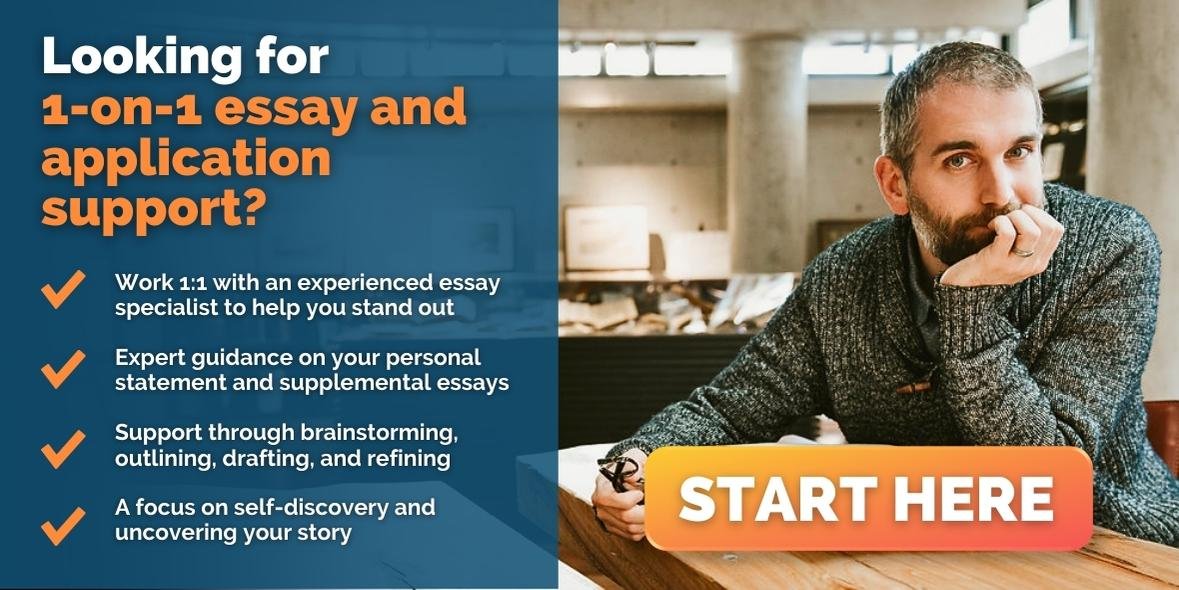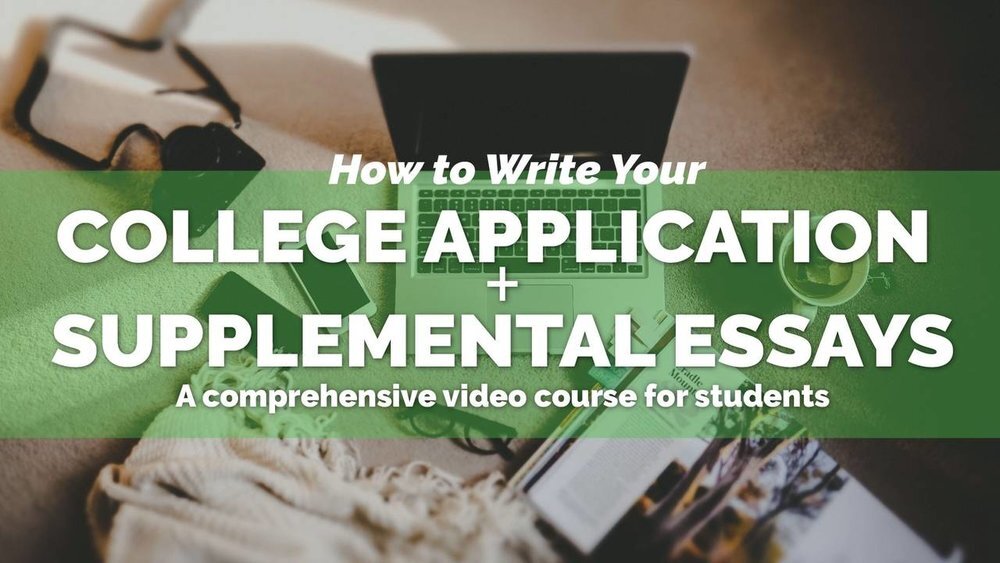(click to skip ahead)
The University of Michigan essays are kind of like the Pyramid of Giza if you turned it upside down and cut it into thirds.
Maybe I should elaborate.
The tip of a pyramid is pretty small, so you can’t fit a ton of stuff into that space. As move toward the base (which is up, if it’s upside down), each third is bigger than the one that came before it. In much the same way, each University of Michigan essay prompt gets progressively broader in scope and larger in terms of word count. As the questions become less specific, the application gives you more room to answer and vice versa.
Think of writing the University of Michigan essays as constructing a literary upside-down Pyramid of Giza. Every part is different, but each one connects to the others. And, every third of it has to be strong to keep the overall structure from crumbling.
But before you dive right into the prompts, get an extensive, by-the-numbers look at UMich’s offerings in its Common Data Set, and for deeper insights into how the university wants to grow and evolve, read its strategic plan.
What are the University of Michigan supplemental essay prompts?
Prompt #1
Everyone belongs to many different communities and/or groups defined by (among other things) shared geography, religion, ethnicity, income, cuisine, interest, race, ideology, or intellectual heritage. Choose one of the communities to which you belong, and describe that community and your place within it. (300 words)
Prompt #2
Describe the unique qualities that attract you to the specific undergraduate College or School (including preferred admission and dual degree programs) to which you are applying at the University of Michigan. How would that curriculum support your interests? (550 words)
How to Write Each Supplemental Essay Prompt for University of Michigan
How to Write the University of Michigan Supplemental Essay #1
Everyone belongs to many different communities and/or groups defined by (among other things) shared geography, religion, ethnicity, income, cuisine, interest, race, ideology, or intellectual heritage. Choose one of the communities to which you belong, and describe that community and your place within it. (300 words)
General Tips:
Don’t repeat things that the reader can find in other parts of your application. Use this essay to show another side of a previously-mentioned community or to discuss a community you haven’t mentioned. The second option is more likely the better choice. Additionally, consider including values you haven’t already demonstrated.
Try to think outside the box. Which of your communities might help you stand out among other “community” essays? Being part of a “community” can take a lot of different forms. Don’t limit yourself to a narrow definition. An essay on a strange talent (like juggling while jogging) or an obscure interest (like historically accurate baking, for example) might be more apt to catch the reader’s attention. And, yes, those are real examples from past students.
Details! Be specific. The more visceral details you can give about yourself and the community you’re discussing, the more you distinguish yourself from all the other applicants. Use memorable language and evoke unique images that will stick with the admissions officers.
Here’s a great sample essay written for Colgate that would work well for this prompt:
Example:
Aside from my inherent love for bagels, my Jewish background has led me to become more embedded in my community, joining Jewish activists and building a website on Holocaust education.
In the 1930s, 36 members of my family were lost to the Holocaust, and that fact has led me to carry on the memory of my ancestors through tradition—with my Bar Mitzvah—as well as with an educational lens—teaching others about the Holocaust and about specific stories of survivors.
Feeling disconnected from Jewish activism, I decided to become an educator on the Student Leadership Board of the Seattle-based Holocaust Center for Humanity last year. Each week, we met to discuss present-day instances of oppression and discrimination across the world, and finished the year by building a website to share the story of a Holocaust survivor.
Being on the board connected me to a network of other passionate Jewish activists, and helped me to channel the pride for my culture and ancestors into visual media that reaches many viewers. At Colgate, I hope to find myself surrounded not only by like-minded Jewish students, but by a diverse group of people with whom I can learn and make connections. (196 words)
— — —
Tips + Analysis
Highlight a core identity. In the example essay, the applicant highlights their Jewish heritage and the profound impact it has had on their life choices and commitments. This is a great way to approach this prompt—think of communities/identities that you claim, pick one that Michigan isn’t seeing elsewhere, and show how that aspect of you + your experiences will allow you to contribute to the Michigan community. Also, ensure you shed light on the aspects of your background that have shaped your identity. This could be cultural, familial, or personal attributes that have molded you into the individual you are today.
Provide concrete examples of impact. Just as the sample essay vividly narrates the applicant's journey in Jewish activism, so you’ll want to offer specific instances that exemplify the impact your background has had on your decisions and pursuits. Whether through personal experiences, engagements, or projects, share specific moments where your background has led you to initiate meaningful actions. In short, show us.
Connect to Michigan’s community. At the end of your essay, consider addressing how your background, values, and commitments align with Michigan’s vision and how you intend to extend these connections on campus to foster learning and shared growth. For example, perhaps you plan on joining (or creating?) relevant student clubs, volunteering at a local museum, or finding innovative ways to connect with students who share a similar background.
Here’s one more that does a great job of answering the prompt:
Example:
I belong to a community of conversation cravers. Every conversation I have makes me a better person. Learning new languages enables me to have more conversations with more kinds of people, expanding my understanding of the world.
Although I was born in Long Island, my first language was Romanian. I learned how to walk in Romanian, how to laugh to Romanian, and how to play in Romanian. I began to learn English in preschool. In English I learned to talk about more complex topics and began striving for deeper discussions.
At the age of seven, I started to learn French. I went to Canoe Island French Camp, where I met kids from around the world. With French, my community expanded like a fishing net cast over water, as I learned about foreign cultures. Last year, I took a trip to Peru to backpack to Machu Picchu. In Spanish, I listened to my guide tell stories about the Incan gods of puma, condor, and snake, and gained a more intense respect for indigenous cultures.
Today I speak four languages, and as a result I am better able to embrace nuanced and multifaceted issues.
I hope to bring my love for intimate conversation into my studies of Political Science at the University of Michigan, where there is a clear emphasis on connection, whether is be through conversation-based LSA classes like,“The Political Economy of African Development” or through opportunities to live with a host family through the study abroad programs offered by the CGIS.
In my career, as I address the issue of climate change on a political level, I will continue to use conversation as a driving force. After all, the drastic social revolution needed to reverse climate change will only happen one person at a time.
— — —
Tips + Analysis
Try to find a great hook. “I belong to a community of cravers.” That’s it. Super simple. Super mysterious. Alliterative. It just totally draws you in. Don’t feel like you have to answer the question in a straightforward way. Start with something that raises more questions than answers and see where it takes you.
Make it easy to follow. This essay is essentially structured in chronological order. In each paragraph, the author gets progressively older and brings some new insight to the table about what she’s learned. This is a great way to structure your essays. Try bolding the first sentence of each paragraph after you write your first draft and see if you still get a sense of the basic timeline/story. That way, you’ll know if you’re providing a clear roadmap for your readers. (Just make sure to unbold it for other versions or at least before you paste it into the application.)
Choose a common thread and stick with it. From the very beginning, the author introduces the theme of “conversation” and the value she gets from listening to the people around her. This ties nicely into her love of language and environmental policy. Rather than confusing the reader with lots of different ideas and themes, she sets one up at the beginning and expands on it as the essay progresses. Try to keep things simple. You only have 300 words. Rather than introducing five different half-baked ideas, stick to one and serve it piping hot.
How to Write the University of Michigan Supplemental Essay #2
Describe the unique qualities that attract you to the specific undergraduate College or School (including preferred admission and dual degree programs) to which you are applying at the University of Michigan. How would that curriculum support your interests? (550 words)
For this one, rather than general tips, check out our complete guide on the “Why us?” essay. Want the TL;DR version? Here it is:
Don’t talk about things the University of Michigan already knows about and hears from tons of other applicants. These are things like weather, location, ranking, or reputation. Also try to avoid taking language directly from the website or brochures. Articulate things in your own words.
Talk about yourself too! Don’t just talk about why you like the University of Michigan. Also explain why you are a good fit for the school. Remember it’s a two-way street.
Do lots of research. Find specific resources, programs, or classes that appeal to you. This includes reading student reviews and doing tours (online, in-person, or both). You might even want to talk to a local representative in your area.
Connect back to your core values. For each part of UMich you like and want to explore, explain how that relates to one of your guiding values.
How you get started:
Spend 1 hr+ researching 10+ reasons why the University of Michigan might be a great fit for you (ideally 3-5 of the reasons will be unique to UMich and connect back to you).
Use this chart to map out your research.
Create an outline. Here’s an example of how you could structure yours:
Thought-provoking or interesting hook
Intro/thesis (say what you want to study and why)
Really specific academic offering at UMich that is in your intended major/concentration (this should connect to you in a really specific way)
A second really specific academic offering that’s also in your intended major/concentration (and that also connects back to you)
Something academic that’s not in your intended major/concentration (this keeps the focus on academics, but also brings in some variety)
Best/most important extracurricular offering (that connects to you in a really specific way)
Miscellaneous extracurriculars paragraph (these interests can also be sprinkled throughout to bolster or counterbalance your academic interest paragraphs)
Closing (this can be short)
Write a first draft.
Here’s a great sample essay for this prompt:
University of Michigan Supplemental Essay Example: Prompt #3
J.R.R. Tolkien introduced us to Middle Earth. George R.R. Martin invited us to King’s Landing. J.K. Rowling enrolled us in Hogwarts. In order to craft fantasy worlds that resonate with the widest audiences, the best writers combine their formal education with personal experience and distinct interests. Creatives must draw inspiration by integrating the depths of their psyche with their environment and, by studying creative writing and Asian studies, I believe the University of Michigan will provide me with opportunities to develop a strong minority voice in the predominantly Caucasian world of young adult fiction.
Through the Residential Colleges, I hope to be a part of a living-learning community that emphasizes critical thinking and creative expression while immersing myself in the development process. The ability to work one-on-one with an RC Professor and receive personalized instruction is invaluable, as it will give me the unique opportunity to address my weaknesses and improve my strengths. And a fiction writer cannot mold young minds to connect deeply and read critically complex works of art without having done so herself, so I am looking forward to First-Year Seminars such as “Topics in the Science of Creativity” and “Saving the World with a Story: Writers’ Voices of Conscience in Fiction,” as these will help me to analyze my writing on both a microscopic and macroscopic level.
The Center of Japanese Studies and the Department of Asian Languages and Cultures will enable me to deepen my understanding of Japanese culture in the classroom and apply my knowledge by studying abroad in Japan. The Residential College intensive language program will help me develop Japanese proficiency, allowing me to take full advantage of overseas study in Kyoto. Courses like Early East Asian Transformations, First-Year Japanese through Anime and Manga, and Spirits of Contemporary Japan will teach me to analyze spirituality, existentialism, and society in the context of classical and contemporary Japan. This can ultimately serve as a thematic basis for my writing. I can see myself attending live action and anime screenings on campus with club Animania and participating in cultural initiatives by the Japan Students Association.
Although writing and Asian Studies are my passions, I look forward to attending a large school with diverse opportunities and want to remain open to post-graduate careers in either business or law. As my sister and I have started a nonprofit, I may want to explore organizational studies. I also want to contribute to the UM community by becoming a Sweetland writing consultant and a creative writing intern at Ypsilanti District Libraries with 826Michigan.
Over the course of my interactions with Brittany Simmons and Logan Corey and after much research, I have come to see that what UM has to offer aligns with so many of my interests and core values. (No other school I know of offered courses in 2015 exploring my literary heroes Miyazaki and Murakami.) In short, Michigan has become a top choice for me and, if I am able to afford it financially, I would love to attend. (505 words)
— — —
Tips + Analysis
Spend some time setting the scene. Right off the bat, the author shows us how we are all implicated in the fantasy stories we know and love. He then talks about how his academic interests would help him understand both the real world and creatively envision alternate universes. That’s just so cool. He’s already done so much in the first paragraph. We’ve got a sense of his intellectual interests. And, we’ve got a good sense of his values (creativity and cultural sensitivity/awareness). It’s important that he included these core values upfront and then elaborates on them later in the essay. We know his direct answer to the question, but have to keep reading to get a better sense of why.
Make your structure clear and logical. After the first paragraph, we know the author is predominantly interested in creative writing and asian studies. In the next two paragraphs, he breaks down each interest and goes into great, specific detail about how he could explore those interests further at the University of Michigan. The arc of this essay makes sense and doesn’t leave the reader confused about what they’re reading or why they’re reading it.
Demonstrate specific interests, but don’t shut out other possibilities. While it’s clear the author has a passion for a couple of specific academic disciplines, he also mentions that he might want to explore community engagement opportunities or alternate post-graduate career options. He ties those other interests to previous experiences he’s had and would like to build on. This is great because a) it shows he’s multi-dimensional, b) has a diverse set of skills, and c) is open to new experiences. If you’re someone who’s not totally sure what you want to major in, this is a great example to follow. Just choose one or two fields of study to answer the question, then later you can add on other interests you might want to explore down the line.
Make good use of the connections you already have with the university. This applicant has already done research with some professors at UMich and knows some of the classes it taught years before he was applying. In the essay, he makes sure the admissions officers know that. Don’t be afraid to flaunt connections you have because it shows your commitment to UMich and demonstrates that you already have a foundation to build off if you were to be accepted.
Here’s another strong essay:
Example:
A PhD student at the Hawaii Institute of Marine Biology once told me something that changed my life. “I can spend my entire career studying the effects that greenhouse gases have on our coral reefs and larger ecosystems, but if my work stays in the lab, it’s worthless.” Mariela’s right. If scientists aren’t advocating for policy and politicians aren’t embracing scientific evidence, then our world will move further into complacency and ignorance. I want to combat the issue of climate change from both a scientific and legislative front, and I believe a major in Political Science, Economics, and Philosophy and a minor in Environment at the University of Michigan can help me achieve this goal.
Last year, as a volunteer with Dr. Kim Schrier’s congressional campaign, I gained hands-on experience in local government. At the University of Michigan, I would jump at the opportunity to participate in the Public Service Internship program in order to gain a better understanding of climate change legislation at the local level. I would also love to take classes such as “Environmental Public Opinion Analysis” and “Energy Politics,” in order to help me understand climate change from both a biologist’s and political scientist’s point of view.
I recently took a Political Science and Economy course at Carleton College, and by far found comparative politics the most complex and nuanced material. I would be honored to explore this topic further with Professor Bednar in classes like “Comparative Constitutional Design,” which would give me insight into how the history and structure of our government is driving unsustainable policies. I also find Professor Bednar’s work on the relationship between state and federal governments fascinating, and would love to learn to design national policies so they have powerful local effects, which will be key in creating effective legislation to combat today’s climate crisis.
As an Environment minor, I hope to continue to further investigate climate change as a scientific issue. Through classes like “Conservation of Biological Diversity” I will learn more about the effects of global warming through the lens of a biologist.
My time at UMich won’t be all work, of course. Nature has long been a source of creative inspiration for me, and I plan to spend most of my free time outdoors. I felt an immediate connection with the extracurriculars offered by the University of Michigan’s Outdoor Education Program, through which I plan to go hiking, rock climbing, and skiing. While researching the Outdoor Adventure Internship, I saw hiking trips to the Sleeping Bear Dunes, Climbing Weeks, and overnight camping trips.
I would also love to participate in the University of Michigan Central Student Government, as I have enjoyed participating in high school student government, and hope to continue to cultivate my collaborative approach to leadership.
Climate change is the most urgent issue facing my generation. I can think of no better way to spend the next four years than at the University of Michigan gaining the tools I need to get straight to work.
— — —
Tips + Analysis
Start with a quote, but not the bad kind. Quotes can be a sticky situation. A lot of applicants think starting with a quote from Albert Einstein or Abraham Lincoln will set them apart from everyone else. We hate to break it to you, but that’s what everyone else thinks too. More often than not, quotes come off as overly cliche or as the author using someone else’s words when they can’t articulate something themselves. That being said, sometimes quotes can work to your advantage. This essay does a great job of introducing the interests/personality of the applicant through a very specific, relevant quote. The quote is from one of her friends, meaning that it’s not something anyone else could have included in their essay (except for maybe the friend?). The author also doesn’t just let the quote stand by itself. She explains it and expands on what it means within the context of her own life. Instead of letting the quote stand in for her own thoughts, she uses it as a launching point.
Use specifics. We get the names of professors this applicant has worked with. Classes she wants to take at UMich. Professors she wants to form relationships with. Majors she wants to pursue. Those details show she cares and how she’ll maximize the university’s resources should she be accepted.
Demonstrate nice work-life balance. It’s so important to remember that college is more than just reading books, solving problem sets, and studying all the time. It’s as much a social experience as it is an intellectual one. Much of UMich’s energy goes into developing dynamic, innovative, and fun extracurricular opportunities for its students. Do research on those things just as much as books, classes, and professors. This author talks about her love of nature, camping, and student government outside the classroom. This is yet another great way of showing that you are a multi-dimensional person with lots of different interests.
With all these tips in mind, you can now focus on the most important tip of all. The tip of your upside down pyramid. Time to get building.
Special thanks to Luci Jones for her contributions to this post.
Luci is an audiophile and storyteller with a love of all things radio and writing. In the wild, you might catch her struggling through a NY Times crossword puzzle, snuggling her abnormally fluffy dog Oreo, or saying her favorite expression “cool beans.” Crosswords, cute dogs, cool beans. What more could you ask for?
Top values: Interpersonal connections | humor | openness to new experience
TRY OUT THE COLLEGE APPLICATION + SUPPLEMENTAL ESSAYS COURSE
Create amazing supplemental essays for the most selective schools, polish your activities list, and complete everything else with ease and joy. Learn more here.












